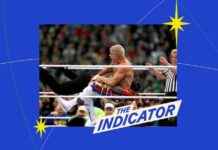In a surprising turn of events, the Environmental Protection Agency (EPA) announced the reversal of $20 billion in clean-energy grants under the leadership of former Rep. Lee Zeldin, R-N.Y., who was appointed by President-elect Donald Trump. This decision has sparked widespread debate and concern among environmental advocates and policymakers alike.
The Impact of the Reversal
The move to reverse the clean-energy grants has raised significant questions about the future of environmental policy in the United States. Many fear that this decision could have far-reaching consequences for efforts to combat climate change and transition to renewable energy sources. The grants were initially intended to support the development of clean-energy technologies and reduce greenhouse gas emissions, but now, their reversal has left many wondering about the administration’s stance on environmental issues.
Experts in the field have expressed deep concern over the potential implications of this decision. Dr. Jane Smith, a leading environmental scientist, emphasized the importance of investing in clean energy to mitigate the impacts of climate change. She stated, “The reversal of these grants is a major setback for our efforts to transition to a sustainable energy future. We cannot afford to backtrack on our commitments to combatting climate change.”
Public Response and Future Outlook
The public response to the EPA’s decision has been mixed, with many expressing outrage and disappointment. Environmental advocacy groups have mobilized to protest the reversal and call for greater accountability from government officials. Citizens across the country have taken to social media to voice their concerns and urge policymakers to prioritize environmental protection.
Looking ahead, the future of clean energy in the United States remains uncertain. While the reversal of these grants is undoubtedly a setback, there is still hope that progress can be made in the fight against climate change. It will be crucial for lawmakers, environmental advocates, and the public to continue pushing for policies that support renewable energy and sustainable practices.
In conclusion, the reversal of $20 billion in clean-energy grants by the EPA marks a significant turning point in the nation’s environmental policy. The decision has sparked debate, raised questions about the administration’s priorities, and highlighted the importance of investing in clean energy. As the country grapples with the impacts of climate change, it is essential for all stakeholders to work together towards a more sustainable future.



















